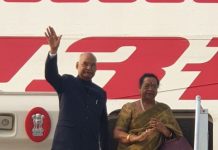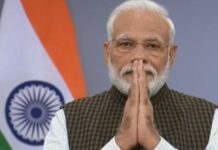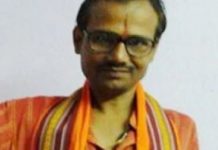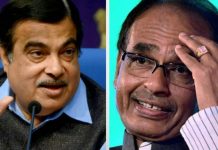 As India has woken up to China’s aggression in various fronts and the billion plus nation slowly but steadily turns compassionate to 14th Dalai Lama, often claimed as Beijing’s number one enemy, who is staying in north Indian city of Dharamshala for decades with sole aim to safeguard the Tibetan language and culture even under the Chinese territory, the Communist regime might increase support to northeast Indian separatist rebels precisely Paresh Barua in the coming days.
As India has woken up to China’s aggression in various fronts and the billion plus nation slowly but steadily turns compassionate to 14th Dalai Lama, often claimed as Beijing’s number one enemy, who is staying in north Indian city of Dharamshala for decades with sole aim to safeguard the Tibetan language and culture even under the Chinese territory, the Communist regime might increase support to northeast Indian separatist rebels precisely Paresh Barua in the coming days.
The top leader of United Liberation Front of Assam (Independent), which has been fighting for a sovereign Asom out of India for decades, Barua is understood to be hiding somewhere in Myanmar-China border area. Often introduced as Paresh Asom, the aged leader has avoided a number of initiatives for peace talks with the Union government in New Delhi, even though most of his rebel colleagues had either surrendered or been eliminated by the security forces.
“Barua usually lives in China (read Yunnan province) and he can speak fluent Chinese. Needless to mention that, Barua enjoys confidence from different Chinese agencies. Minus the consent of local Chinese authorities, it would have not been possible for him to stay there for many years now,” said GM Srivastava, a security analyst based in northeast India.
The former State police chief of Tripura and Assam even stated that a group of Chinese secret service officers even visited some makeshift camps of the militant outfits inside the jungles of Myanmar-China border. Some militants also visited China for different training courses, he added. Srivastava argued that the illusive leader might be used by the Chinese administration to put the region, which militants often term as Western South East Asia, in relentless troubles.
He also stated that a small group of armed cadres could be engaged in violent activities to keep the counter-insurgency security forces busy in the region and more precisely an alliance of northeastern militant outfits tilted as United National Liberation of Western South East Asia was formed in northern Myanmar under the patronage of some top insurgent leaders including Barua.
The anti-New Delhi (reading India as an enemy nation) rhetoric, even though with diminishing public supports by every year, has been maintained by most of the surviving insurgents of the region. Recently while the country celebrated 74th Independence Day, these militant groups, though two separate media statements, called for a total shutdown from 6 am to 5 pm on 15 August to prevent any I-Day functions including the hoisting of national Tri-colour in the region.
The boycott call was made by ULFA (Independent), National Socialist Council of Nagalim along with People’s Democratic Council of Karbi Longri, Kamatapur Liberation Organization, Hynniewtrep National Council, Kanglei Yawol Kanna Lup, Kangleipak Communist Party, and National Liberation Front of Twipra, where they insisted that it was a ‘colonial Indian I-Day’ and was not meant for northeastern freedom loving people.
In various occasions, Beijing has seemingly used Barua and his brigade. For example, three years back when Nobel laureate Dalai Lama was visiting Tawang, Barua and his associates issued a number of statements requesting the Tibetan spiritual leader not to make any anti-China statement from the soil of Assam. He went on explaining that China was never an enemy to Assam and the Han Chinese would be helpful for the northeastern people once they get separated from the mainland India.
Barua even urged world famous monk to help the native people of Assam in getting their due political rights as it was an independent country till the Treaty of Yandabo, which was signed on 24 February 1826 by the British colonial forces with the Burmese invaders. Criticizing all kinds of anti-Beijing propagandas in the region, Barua appealed to the locals to avoid supporting the movement for a free Tibet.
But he was sharply criticized by the Patriotic Peoples’ Front Assam (PPFA) for repeated appeasing statements in favour of the Communist China. The forum of nationalists pointed out that China was never a neighbor to India (rather Tibet). It asserted that a sovereign Tibet would be very friendly and advantageous to India in various aspects and hence New Delhi should support the mission so that Dalai Lama can return to his Potala palace in Lhasa with all dignities.
More recently, a social media campaign was launched by the Tibetan freedom fighters along with their supports on the occasion of Dalai Lama’s 85th birth day. The campaign titled as LongLiveDalaiLama condemned Beijing for its repeated attempts to malign the image of His Holiness and also legitimize its illegal occupation over Tibet since 1959. The campaign eventually gained momentum in India as the border conflicts with China resulted in the killing of 20 Indian soldiers on June 15.
As the international community started accusing Beijing for the Covid-19 pandemic that has already affected millions of people, majority Indians emotionally joined in the movement to oppose China in all aspects. A number of popular Chinese technological applications including TikTok were already banned by the Indian government. Lately, the Central Tibetan Administration chief Lobsang Sangay came out with a fervent appeal to New Delhi for raising the issue of Tibet in all bilateral talks with Beijing.
Amidst the stand-off between New Delhi and Beijing, Barua led militant group posted two Pro-China videos. Produced in English and Assamese the videos (https://www.youtube.com/watch?v=YHz4Ci5NlJ4), the armed outfit unilaterally blamed India for all border conflicts with China including the aggression by People’s Liberation Army personnel in 1962 (three years after Dalai Lama escaped Tibet). The young narrator reminded that Assam had an old connection with China and emphasized on its due revival. Lately, New Delhi had provided all details of Barua to the Chinese administration for necessary actions as he is suspected to nurture militancy in the region from his Chinese hide outs. But the government continued calling him for peace talks and all the time he reiterated that they would participate in talks if New Delhi was ready to discuss on Assam’s sovereignty. Need not to mention that because of his absence many peace initiatives turned futile in the past.
letters@tehelka.com













